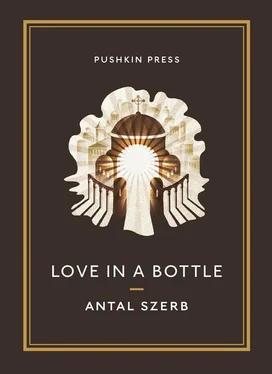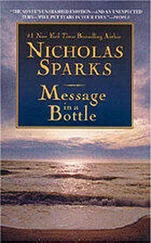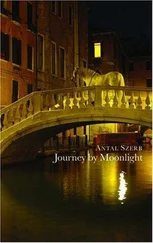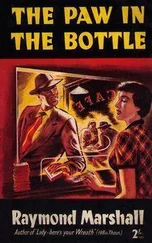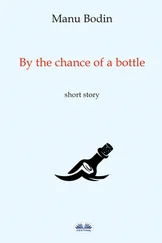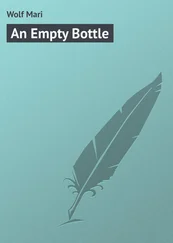Antal Szerb - Love in a Bottle
Здесь есть возможность читать онлайн «Antal Szerb - Love in a Bottle» весь текст электронной книги совершенно бесплатно (целиком полную версию без сокращений). В некоторых случаях можно слушать аудио, скачать через торрент в формате fb2 и присутствует краткое содержание. Год выпуска: 2013, Издательство: Pushkin Press, Жанр: Классическая проза, на английском языке. Описание произведения, (предисловие) а так же отзывы посетителей доступны на портале библиотеки ЛибКат.
- Название:Love in a Bottle
- Автор:
- Издательство:Pushkin Press
- Жанр:
- Год:2013
- ISBN:нет данных
- Рейтинг книги:5 / 5. Голосов: 1
-
Избранное:Добавить в избранное
- Отзывы:
-
Ваша оценка:
- 100
- 1
- 2
- 3
- 4
- 5
Love in a Bottle: краткое содержание, описание и аннотация
Предлагаем к чтению аннотацию, описание, краткое содержание или предисловие (зависит от того, что написал сам автор книги «Love in a Bottle»). Если вы не нашли необходимую информацию о книге — напишите в комментариях, мы постараемся отыскать её.
and
.
Love in a Bottle — читать онлайн бесплатно полную книгу (весь текст) целиком
Ниже представлен текст книги, разбитый по страницам. Система сохранения места последней прочитанной страницы, позволяет с удобством читать онлайн бесплатно книгу «Love in a Bottle», без необходимости каждый раз заново искать на чём Вы остановились. Поставьте закладку, и сможете в любой момент перейти на страницу, на которой закончили чтение.
Интервал:
Закладка:
Antal Szerb
Love in a Bottle
TRANSLATOR’S INTRODUCTION
IN 1947, two years after his death, a collection was made of Antal Szerb’s short stories and novellas. Overseen by his widow, it brought together everything he had published in this genre, together with fragments of a projected novel and three new stories found in desk drawers. Under its 1963 title Szerelem a palackban , it has enjoyed regular reprinting in Hungary. Though not exhaustive, it covers almost the full sweep of Szerb’s distressingly brief career: he was still a student in 1922 when “Ajándok’s Betrothal” was accepted by the influential literary journal Nyugat ; “The Duke” (1943) was effectively the last thing he wrote.
In 2010 Pushkin Press published a selection of these tales in English translation, under the present title Love in a Bottle . This new edition adds two further short stories, “Cynthia” and “A Garden Party in St Cloud”. They had been omitted on the grounds that the author had probably never intended them for publication. In retrospect, that was too rigid a criterion for excluding two narratives of real brilliance that are central to his artistic development. To make that development easier to follow, in another departure from the 2010 volume, the material is here printed in strictly chronological order of writing.
It begins with three of Szerb’s youthful novellas, published in 1922 and 1923. Each reflects a different aspect of the idealism that drove him in these years. The settings are romantic and quasi-mythical, and the style appropriately mannered, but they are put to surprisingly modern purpose, weaving patterns of imagery and motif to produce real depths of resonance. All three explore questions of self-isolation, through the recurring image of a “tower of solitude”.
In “Ajándok’s Betrothal” (1922) its representative is the strange “tower-house” dreamt up by the heroine and her outlandish fiancé. Against it stands the imposing mill, embodying the working life of the village community and the bonds that hold it together. Both protagonists are solitaries by nature: he by virtue of what he is, she through an increasingly morbid disposition of character, which the folkloric conventions are skilfully harnessed to explore. As the tale proceeds, the seemingly idyllic portrait of rural life becomes increasingly charged with ambiguity, and we are left with disturbing paradoxes about the limits of what mankind can know and control.
The secluded astronomical tower in “The White Magus” (1923) seems at first glance altogether more benign — a place of arcane learning and spiritual detachment. The ideal it represents is contrasted with the instinctive compassion of the heroine, Princess Zoë. Two ancient and opposing religious traditions are invoked here, and as always with this writer, the argument is resolved through action. The narrative achieves a level of a mystical intensity that will not be seen again until his 1934 Anglo-Welsh novel The Pendragon Legend.
In “The Tyrant” (also written in 1923), the tower is one of “solitude and freedom”, constructed by the all-powerful Duke against the ‘dangers’ of personal love. Now, for the first time in Szerb’s art, the focus is on the protagonists’ inner struggle for self-knowledge. Both parties strive to know their true feelings, yet the greater the clarity they achieve, the less they seem to understand. Such ironies will haunt all Szerb’s fiction from now on.
Several years passed before Szerb returned to the genre. By then, the seemingly romantic novellas of his youth had given way to shrewdly observed stories of contemporary life. The prevailing tone is one of amused, sceptical intelligence, a self-deprecating irony born of experience. This new voice first appears in 1934—a milestone year — and is heard in almost everything he writes from this point on. It is the voice of a man finally coming to terms with the baffling and paradoxical nature of the world, with painful questions of love and sexuality, and with himself.
The struggle was hard-won. It involved the loss of the religious ardour that had marked his adolescence, and destroyed his earlier, idealising attitudes to women. Evidence of the latter process is glimpsed in the two stories he chose not to publish, “Cynthia” and “A Garden Party in St Cloud” (both written in 1932). “Cynthia”, with its racy, freewheeling tempo and throwaway manner, blithely parodies its creator’s fantasising tendencies, investing them with an almost surreal quality, but it culminates in a brutally candid analysis of a relationship in which both parties are simply using one another. “St Cloud” is even more pitiless in its scrutiny, and, like “Cynthia”, it ends on a note of desolation seldom seen in this writer’s work. Both stories are marked by a sense of personal relevance that might explain why Szerb kept them to himself. But they are carefully crafted and subtly shaped, and contain some of the most brilliant passages he ever wrote.
The process of maturing also required his leaving Budapest. After periods of wandering through Italy, Szerb spent two further years (1929–31) in Paris and London, passing his days first in the Bibliothèque nationale, then in the Reading Room of the British Museum. The former experience is reflected in “Musings in the Library” (1934), the latter in The Pendragon Legend , published later in the same year.
It was probably in London that Szerb found his true direction. He arrived widely read in several European literatures, but it was the English tradition that spoke to him most intimately. His publications already included a study of Blake and a short History of English Literature , but his tastes were catholic, and the sheer breadth of his reading is remarkable. Appropriately, the first of the new-style stories is “Fin de Siècle” (early 1934), with its cheerfully irreverent portraits of Wilde and Yeats.
The new manner is far more than a matter of voice. In these stories Szerb found his true material — the comic confusions of everyday life and the elementary blindnesses we are all capable of. The theme is the devious workings of the ego, with its endless rationalisations and self-deceptions. This goes well beyond the usual purposes of comedy. The very notion of ‘self’ as something fixed and stable is revealed as illusory, and, typically, the self he most hilariously demolishes is his own. At times these narratives read like exercises in spiritual mortification — as devised by a latter-day St Ignatius Loyola with a bizarre sense of humour. Wryly noting his own follies, it is the unheroic hero who provides the lucid consciousness through which the action is mediated. It is this lucidity, perhaps even more than the irony it results in, that marks Szerb’s originality and greatness as a writer.
The next three tales continue the exploration of fantasy and idealism begun in 1932. The narrative ‘I’ is now the voice of Dr János Bátky, Szerb’s cruelly parodic alter ego, and, despite the underlying pathos, the tone is relentlessly comic. In “A Dog Called Madelon” the hero, like the narrator of “Cynthia”, persuades himself that he will find “erotic charge” only in a woman with aristocratic credentials; in “Musings in the Library” his criteria are academic and intellectual. The blend of irony and pathos, of comedy and despair, is entirely Szerb’s own.
The title story, “Love in a Bottle” (1935) — a pointed reversion to the early novella format — gives idealised love its final and devastating comeuppance. In doing so it prepares the way for Szerb’s 1937 masterpiece Journey by Moonlight . Central to the 1937 novel is the hero’s obsession with his adolescent femme fatale Éva, a morbid passion characterised by “the exulting humiliation of knowing I was lost for love of her and that she didn’t care for me”. The 1935 story gives this mawkish sentiment wonderfully short shrift. But despite its savagely funny ending, it is by no means cynical. Released from his devotion to the appalling Guinevere, Lancelot enters a joyous world, teeming with possibilities, where a spontaneous delight is discovered in the simplest things.
Читать дальшеИнтервал:
Закладка:
Похожие книги на «Love in a Bottle»
Представляем Вашему вниманию похожие книги на «Love in a Bottle» списком для выбора. Мы отобрали схожую по названию и смыслу литературу в надежде предоставить читателям больше вариантов отыскать новые, интересные, ещё непрочитанные произведения.
Обсуждение, отзывы о книге «Love in a Bottle» и просто собственные мнения читателей. Оставьте ваши комментарии, напишите, что Вы думаете о произведении, его смысле или главных героях. Укажите что конкретно понравилось, а что нет, и почему Вы так считаете.
